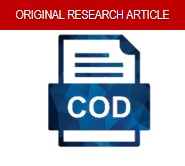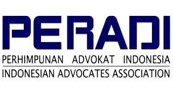Cloud Computing Service Provider Arrangements and Responsibilities for Storage of User's Personal Data from Electronic Data Leaks
DOI:
https://doi.org/10.46924/jihk.v2i1.136Keywords:
Service Liability, Cloud Computing, Personal Data LeakageAbstract
The rapid development of information technology that provides benefits turns out to have a negative impact on users, the possibility of personal data leakage. Cloud Computing is one example of the development of information technology (IT) that offers real convenience in storing, uploading, and downloading data. However, a few phenomenon involves the platform in the case of data leaks. The purpose of this research is to identify the arrangements and the responsibility of cloud computing service providers. Cloud computing is implicitly regulated in the Constitution of electronic information and transaction (UU ITE) and 2019 Government regulations on the Operation of Electronic Systems and Transactions (PP PSTE 2019), the registration of a reliability certificate to ensure its security. PP PSTE 2019 allows Electronic System Operator (PSE) to do storage both inside and outside Indonesia but is under the supervision of the ministry so it is understandable that cloud computing is regulated in Indonesia in the sense of storage. The law is progressive and does not comply with cloud computing regulations that have not been specifically regulated.
Downloads
References
Jurnal
Alzahrani, Hibatullah. “A Brief Survey of Cloud Computing.” Double Blind Peer Reviewed International Research Journal 16, no. 3 (2016): 1–7. https://globaljournals.org/item/6275-a-brief-survey-of-cloud-computing.
Attaran, Mohsen. “Cloud Computing Technology: Leveraging the Power of the Internet to Improve Business Performance.” Journal of International Technology and Information Management 26, no. 1 (2017): 112–37. https://scholarworks.lib.csusb.edu/cgi/viewcontent.cgi?article=1283&context=jitim.
Fatmawati, Arum, and Budi Hermono. “Perlindungan Hukum Atas Data Pengguna Oleh Penyedia Layanan Cloud Computing Ditinjau Dari Undang-Undang Nomor 11 Tahun 2008 Tentang Informasi Dan Transaksi Elektronik.” Novum: Jurnal Hukum 3, no. 3 (2016): 1–10. https://doi.org/10.2674/novum.v3i3.17895.
Hayes, Brian. “Cloud Computing.” Communications of the ACM 51, no. 7 (2008): 9–11. https://doi.org/10.1145/1364782.1364786.
McManaman, Linus J. “The Legal Philosophy of Roscoe Pound.” The Journal of Catholic Legal Studies 13, no. 2 (1967): 98–130. https://scholarship.law.stjohns.edu/cgi/viewcontent.cgi?article=1631&context=tcl.
Mulyadi, Lilik. “Teori Hukum Pembangunan Prof. Dr. Mochtar Kusumaatmadja, S.H., LL.M: Sebuah Kajian Deskriftif Analitis.” Jurnal Mahkamah Agung Ri, 2019, 1–6. https://badilum.mahkamahagung.go.id/upload_file/img/article/doc/kajian_deskriptif_analitis_teori_hukum_pembangunan.pdf.
Raghavendran, Ch V, Ganti Naga Satish, Suresh Varma Penumathsa, and Jose Moses Gummadi. “A Study on Cloud Computing Services.” International Journal of Engineering Research and Technology 4, no. 34 (2016): 67. https://doi.org/10.17577/IJERTCONV4IS34014.
Rosadi, S. D, and Gumelar G Pratama. “Protecting Privacy On Personal Data In Digital Economic Era : Legal Framework In Indonesia.” Brawijaya Law Journal 5, no. 2 (2018): 143–157. https://doi.org/10.21776/ ub.blj.2018.005.01.09.
Rosadi, Sinta dewi. “Implikasi Penerapan Program E-Health Dihubungkan Dengan Perlindungan Data Pribadi.” Arena Hukum 9, no. 3 (2016): 403–20. https://doi.org/10.21776/ub.arenahukum.2016.00903.6.
Rosadi, Sinta Dewi. Cyber Law: Aspek Data Privasi Menurut Hukum Internasional, Regional, Dan Nasional. Bandung: PT Refika Aditama, 2015.
Taylor-Sakyi, K. “Big Data:Understanding Big Data. Research Gate, The Right to Privacy in the Digital Age.” Research Gate, 2016, 1–9. https://doi.org/10.1017/S0020818300024796 UNCTAD.
Yuniarti, Siti. “Perlindungan Hukum Data Pribadi Di Indonesia.” Jurnal Becoss: (Business Economic, Communication, and Social Sciences), 1, no. 1 (2019): 147–54. https://doi.org/10.21512/becossjournal.v1i1.6030.
Buku
Makarim, Edmon. Tanggung Jawab Hukum Penyelenggara Sistem Elektronik. Jakarta: Rajawali Pers, 2010.
Muhammad, Abdulkadir. Hukum Perusahaan Indonesia. Bandung: Citra Aditya Bakti, 2010.
Westin, Alan F. Privacy and Freedom. New York: Ig Publishing, 2018.
Peraturan Perundang-undangan
Indonesia. Peraturan Pemerintah Nomor 82, Pasal 17 tentang Penyelenggaraan Sistem dan Transaksi Elektronik (2012).
Kementerian Komunikasi dan Informatika Republik Indonesia. Peraturan Pemerintah Penyelenggaraan Sistem dan Transaksi Elektronik, Pasal 15 (2019).
———. Peraturan Pemerintah Penyelenggaraan Sistem dan Transaksi Elektronik, Pasal 21 (2019).
———. Peraturan Pemerintah Penyelenggaraan Sistem dan Transaksi Elektronik, Pasal 74 Ayat (3) (2019).
———. Peraturan Pemerintah Penyelenggaraan Sistem dan Transaksi Elektronik, Pasal 76 (2019).
———. Undang-Undang Informasi dan Transaksi Elektronik, Pasal 10 (2008).
———. Undang-Undang Informasi dan Transaksi Elektronik, Pasal 15 ayat (1) (2008).
———. Undang-Undang Informasi dan Transaksi Elektronik, Pasal 26 ayat (1) (2008).
———. Undang-Undang Informasi dan Transaksi Elektronik, Pasal 45 (2008).
Internet
Franedya, Roy. “Survei: Pengguna Internet Di RI Tembus 171,17 Juta Jiwa.” CNBC Indonesia, 2019. https://www.cnbcindonesia.com/tech/20190516191935-37-73041/survei-pengguna-internet-di-ri-tembus-17117-juta-jiwa.
Kemp, Simon. “Digital 2019: Global Internet Use Accelerates,” 2019. https://wearesocial.com/blog/2019/01/digital-2019-global-internet-use-accelerates.
Downloads
Published
Issue
Section
License
Authors who publish with this journal agree to the following terms:
- Copyright on any article is retained by the author(s).
- The author grants the journal, the right of first publication with the work simultaneously licensed under a Creative Commons Attribution License that allows others to share the work with an acknowledgment of the work’s authorship and initial publication in this journal.
- Authors are able to enter into separate, additional contractual arrangements for the non-exclusive distribution of the journal’s published version of the work (e.g., post it to an institutional repository or publish it in a book), with an acknowledgment of its initial publication in this journal.
- Authors are permitted and encouraged to post their work online (e.g., in institutional repositories or on their website) prior to and during the submission process, as it can lead to productive exchanges, as well as earlier and greater citation of published work.
- The article and any associated published material is distributed under the Creative Commons Attribution 4.0 International License




 Sinta ID:
Sinta ID: 


















